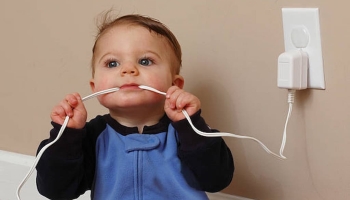
Many women experience a strong desire to have a baby at some point in their lives, often experiencing baby fever. This longing can be difficult to understand, especially if the woman is not in a position to have a child, is not financially stable, or has other priorities. However, the desire for a baby is a natural human function and complex emotion that can be influenced by a variety of factors.
For some women, the desire to want a baby is rooted in their biology. The human body, with its thyroid and adrenal glands, is designed to reproduce, and hormones like estrogen, which might be impacted by birth control, can trigger feelings of longing and yearning to get pregnant. Additionally, when talking to others, societal expectations or even the stories shared by a mom about having her first child can play a role in shaping a woman’s desire for a baby.
Despite the many reasons why women may want a baby, it’s a huge responsibility and the decision to have a child is a deeply personal one that should not be taken lightly. If one feels the desire to have kids, it’s essential to communicate with their partner. By understanding the factors that contribute to the desire for a baby, women can make informed decisions about their futures and build fulfilling lives for themselves and their families.
For those who hope for children, it’s important to be aware that while the idea of having a kid can sound exciting, acting on impulse without being prepared is a bad idea.
Understanding the Desire for a Baby

The desire to have a baby is a complex and multifaceted emotion that can be influenced by a variety of factors. Many people feel a deep longing for a child, while others experience a more gradual desire that builds over time. Regardless of the intensity or duration of the desire, it is a natural and common human experience, intertwined deeply with our sexual function.
Emotional factors can play a significant role in the desire for a baby. For many people, the idea of having a child represents a deep sense of fulfillment and purpose. They may feel that having a baby will bring them joy, meaning, and a sense of completeness. Others may feel a strong desire to nurture and care for a child, or hope to experience the unique bond that can develop between a parent and their offspring.
Hormones can also play a role in the desire for a baby. Women, in particular, experience hormonal fluctuations throughout their menstrual cycle that can affect their desire for a child. During ovulation, for example, women may experience a surge in estrogen that can increase their libido and make them more interested in sex. This can, in turn, increase their desire for a baby.
The desire for a baby can also be influenced by physical factors, such as stress. Many people find that the desire for a baby increases during times of high stress or anxiety. This may be because the idea of having a child represents a sense of stability and security in an otherwise uncertain world.
Some people may experience a phenomenon known as “baby fever.” This is a term used to describe a sudden and intense desire for a baby that can be difficult to ignore. Baby fever is thought to be driven by a combination of emotional, hormonal, and psychological factors.
Ultimately, the desire for a baby is a deeply personal and individual experience. For many people, the decision to have a child is a joyful and fulfilling one that brings a sense of purpose and meaning to their lives. Others may feel a more gradual or ambivalent desire for a baby, or may choose not to have children at all. Whatever their reasons, it is important for individuals to make the decision that feels right for them and their unique circumstances.
Biological Aspects of Wanting a Baby
Role of Hormones
Hormones play a crucial role in the desire to have a baby. Oxytocin, also known as the “love hormone,” is released during physical touch, such as hugging and kissing, and during sexual activity. This hormone is associated with bonding and attachment, which can increase the desire to have a child. Estrogen and testosterone also play a role in fertility and the desire to have a baby.
Reproduction and Fertility
The desire to have a baby is often linked to reproduction and fertility. Women’s bodies are designed to ovulate and conceive, and the menstrual cycle plays a significant role in fertility. Age can also impact fertility, as women’s fertility declines as they get older. Men’s fertility can also be impacted by factors such as age, stress, and lifestyle factors.
Physical Changes and Challenges
Pregnancy and childbirth can bring about significant physical changes and challenges. Women’s bodies undergo significant changes during pregnancy, including weight gain, hormonal changes, and physical discomfort. Childbirth can also be challenging, both physically and emotionally. Lactation and breastfeeding can also bring about physical changes and challenges.
Impact of Lifestyle Factors
Lifestyle factors such as stress, sleep, weight, and metabolism can impact fertility and the desire to have a baby. Stress can impact hormone levels and fertility, while sleep is crucial for overall health and well-being. Weight and metabolism can also impact fertility, and certain lifestyle factors such as alcohol and caffeine consumption can also impact fertility.
Psychological Factors Behind Wanting a Baby

The desire to have a baby can be influenced by various psychological factors. Emotional attachment and the longing to nurture and care for a child are some of the primary reasons why people want to have a baby. For some, having a baby is a way of fulfilling their existential need for meaning and purpose in life.
Stress and anxiety can also be a driving force behind the desire to have a baby. Some people may view having a child as a way of coping with the stressors and challenges of life. However, it is important to note that having a baby can also add to the stress and responsibilities of life.
The joy and happiness that a baby can bring into one’s life is another factor that can influence the desire to have a child. The thought of experiencing the unconditional love and affection of a child can be a powerful motivator for prospective parents.
At the same time, the fear of missing out and the panic of not being able to have a child can also be a reason why some people want to have a baby. The societal pressure to have a child and the fear of regretting not having one later in life can also play a role in the decision to have a baby.
Social and Cultural Influences

Social and cultural factors play a significant role in a person’s desire to have a baby. People are often influenced by their surroundings, upbringing, and societal norms. Here are some of the social and cultural factors that may contribute to a strong desire to have a baby:
Motherhood
Motherhood is often seen as a fulfilling and rewarding experience. It is a role that is highly valued in many societies, and mothers are often seen as the primary caregivers and nurturers of children. This can lead to a desire to experience motherhood and all the joys and challenges that come with it.
Parenting
Parenting is a crucial part of raising children. It involves providing love, support, and guidance to help children grow into happy and healthy adults. Many people feel a strong desire to become parents and raise children to the best of their abilities.
Marriage
Marriage is often seen as a precursor to starting a family. Many people view marriage as a commitment to building a life together and creating a family. This can lead to a desire to have a baby and start a family as soon as possible.
Unity
Having a baby can bring a couple closer together. It can create a sense of unity and shared purpose that can strengthen a relationship. This can be a powerful motivator for people who are in committed relationships and are looking to take the next step.
Nurture
Nurturing is an essential part of raising children. It involves providing love, care, and attention to help children grow and develop. Many people feel a strong desire to nurture a child and provide them with everything they need to succeed in life.
Raising Children
Raising children is a challenging but rewarding experience. It involves teaching children important life skills, providing emotional support, and helping them navigate the world around them. Many people feel a strong desire to raise children and help them become happy and successful adults.
Having Children
Having children is a significant life event that can bring immense joy and fulfillment. It can provide a sense of purpose and meaning that is hard to find elsewhere. Many people feel a strong desire to have children and experience all the joys and challenges that come with parenthood.
Navigating the Desire for a Baby

The desire for a baby is a natural and common longing for many women. It can be an emotional and stressful journey for those who feel the strong urge to become a mother. This phenomenon is often referred to as “baby fever,” and it can be difficult to navigate.
For some women, the desire for a baby is rooted in the desire to nurture and care for a child. The idea of motherhood is appealing, and the thought of raising a child can be fulfilling. However, for others, the desire for a baby may be tied to societal expectations or pressure from family and friends.
Navigating the desire for a baby can be challenging, especially for those who are not in a committed relationship or are struggling with infertility. It is important to acknowledge and understand the emotions that come with this desire, and to seek support from loved ones or a therapist if needed.
Meditation and mindfulness practices can also be helpful in managing the stress and emotions that come with the desire for a baby. Taking time to focus on the present moment and connect with oneself can provide a sense of calm and clarity.
It is important to remember that parenthood is a lifelong commitment, and the decision to have a child should not be taken lightly. For those who want a baby, it is essential to consider all aspects of parenting, including the financial, emotional, and physical demands that come with raising a child.
Frequently Asked Questions
What causes a strong urge to have a baby?
There is no one specific cause for the strong urge to have a baby. It can be a combination of factors such as societal expectations, personal values, biological clock, or a desire for companionship. For some people, it can be a way to fulfill their need for nurturing and caring for another human being.
Is it normal to feel an intense desire to have a baby?
Yes, it is normal to feel an intense desire to have a baby. Many people experience this urge at some point in their lives. However, it is important to remember that everyone’s journey is unique, and there is no right or wrong way to feel.
How can I cope with the emotional impact of wanting a baby?
Coping with the emotional impact of wanting a baby can be challenging. It may be helpful to talk to a therapist or counselor to work through your feelings and develop coping strategies. You can also try practicing self-care, such as exercise, meditation, or spending time with loved ones.
Are there any risks associated with having a baby at a young age?
Having a baby at a young age can come with certain risks, such as a higher risk of premature birth or low birth weight. It can also be emotionally and financially challenging. It is important to carefully consider all factors before making a decision to have a baby at a young age.
Can therapy help me deal with my desire for a baby?
Yes, therapy can be a helpful tool in dealing with the desire for a baby. A therapist can provide a safe and supportive environment to explore your feelings and develop coping strategies. They can also help you work through any underlying issues that may be contributing to your desire for a baby.








